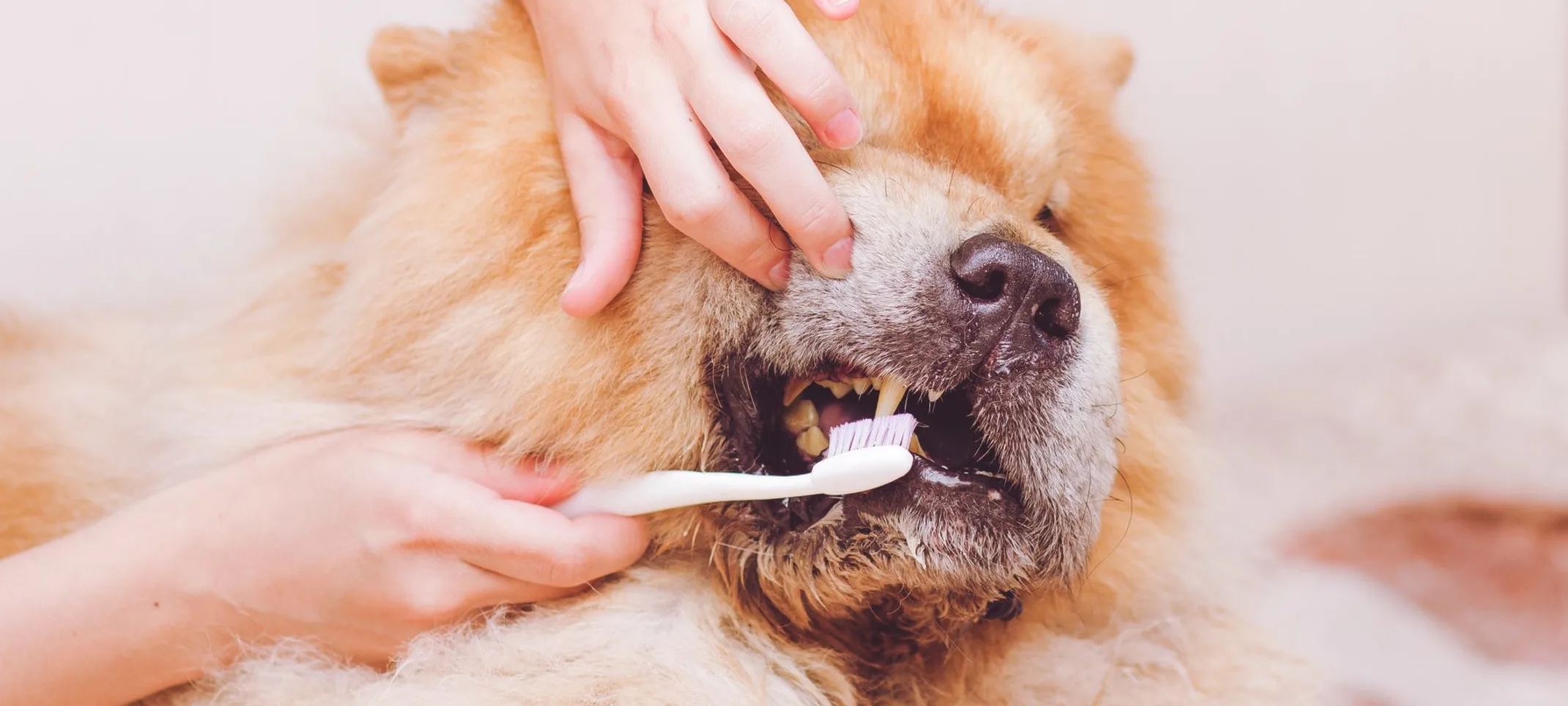College Mall Veterinary Hospital
Dentistry
Annual dental exams and cleanings are recommended to protect your pet from many health problems and help them maintain a healthy and clean mouth.

Overview
Studies show that 50% of all dogs and cats have some form of periodontal disease. That number jumps to 75% with pets that are 3 years of age or older. Our dental services at College Mall Veterinary Hospital include comprehensive oral assessments, radiographic evaluation, teeth cleaning and polishing, surgical tooth extraction, and minor oral surgery. Regular professional cleaning is important to maintaining your pet's health at any age. Dental cleanings must be performed under general anesthesia in order to properly and safely examine and clean the teeth.
Why do pets need dental care?
Many health problems start in the mouth. Plaque, tartar, periodontal disease, and infected teeth serve as a source of inflammation and infection for the rest of the body. If left untreated, periodontal disease can cause infection, chronic pain, and tooth loss over time. It can also lead to serious health problems like microscopic changes in the heart, liver, and kidneys. Because of this, we recommend an annual veterinary dental healthcare examination for all pets.
When should I seek dental care for my pet?
Dental disease is one of the most common problems that we see in dogs and cats. It can cause drooling, reluctance to eat, swelling, bad breath, redness of the gums, loose teeth and tooth discoloration. We take a comprehensive approach to dental care including dental health assessment, treatment, and prevention. Your veterinarian may recommend an oral assessment, radiographic evaluation, cleaning and polishing to help prevent dental disease and help maintain your pet’s overall health.
How does it work?
Comprehensive Oral Assessment, Radiographic Evaluation, Cleaning, & Polishing Dog and cat dental cleanings are very similar to human dental cleanings, except that we are required to use anesthesia to properly and safely examine and clean the teeth. After thoroughly cleaning above and below the gum line, our veterinarians perform a thorough oral exam and check for signs of disease like gum loss, root exposure, or pockets around the root.
Also similar to human dentistry, we do full mouth x-rays of your pet. This allows our veterinarians to be able to evaluate the roots of your pet's teeth as well as any disease or abnormalities that are located below the gum line and not visible on examination alone.
Surgical Tooth Extraction and Minor Oral Surgery
We make every effort to save teeth that we feel have a chance to be successfully treated. In many circumstances, however, periodontal disease is so advanced that treatment without extraction is unsuccessful. If indicated, teeth may need to be surgically extracted to safely remove each individual root. Our Veterinarians have extensive training and experience to perform these procedures properly. Oral nerve blocks are performed, and pain medications are administered in hospital and provided for in-home aftercare.
